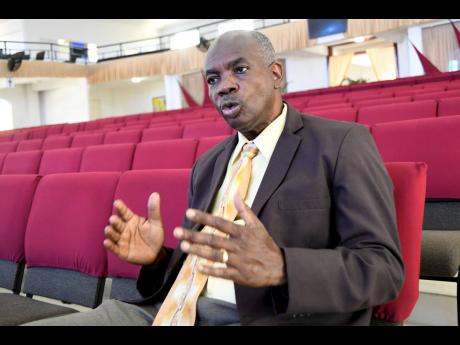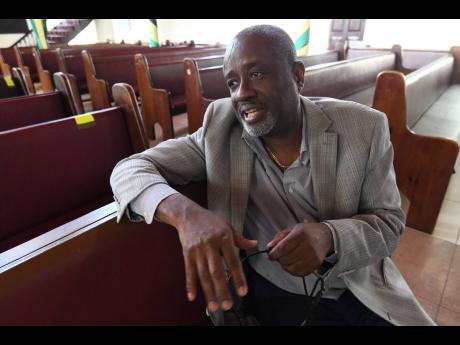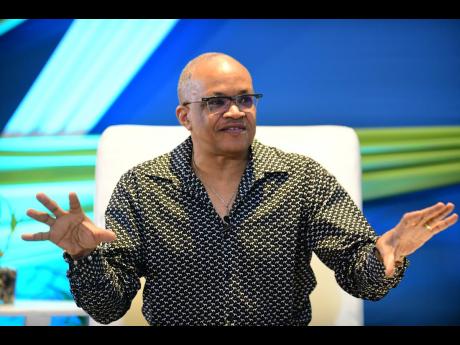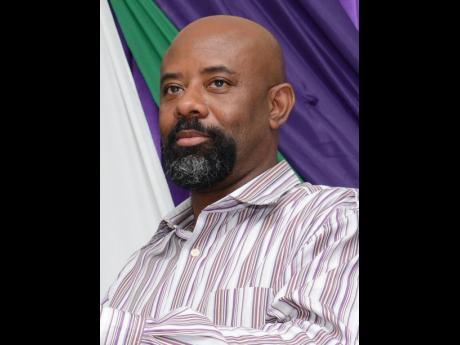Ministry warned against micromanaging religious freedoms
Ministry of Education officials have been warned to tread carefully on religious rights and freedoms as it seeks to establish protocols to govern devotional exercises in the wake of bizarre scenes on Wednesday at Oberlin High School where dozens of...
Ministry of Education officials have been warned to tread carefully on religious rights and freedoms as it seeks to establish protocols to govern devotional exercises in the wake of bizarre scenes on Wednesday at Oberlin High School where dozens of students appeared to be in a high-emotion trance.
Church leaders have argued that the Government should be wary of trying to micromanage religious observances at schools and joined with the National Parent-Teacher Association of Jamaica in calling for consultation and consensus.
Those reactions follow Education Minister Fayval Williams’ declaration that while she encouraged devotions, “school leaders have a responsibility to exercise caution as to content and likely impact on students as evidenced by the reaction of students at Oberlin High School”.
The St Andrew-based institution had an early dismissal after a teacher who was leading worship announced that she had “a word” and prayed for the student population.
That reportedly triggered an extended period of “speaking in tongues”, or glossolalia, which triggered a chain reaction of similar expression among some students.
Some fell to the ground screaming while others appeared to be overwhelmed with emotion.
TOO EARLY FOR CRISIS MOVE
The Reverend Alvin Bailey, presiding bishop of the Portmore Holiness Christian Church, urged the ministry against a “knee-jerk response” to the situation or treating it as a wider crisis.
Bailey told The Gleaner that “from time to time we have had incidents of spiritual happenings and demonstrations that are not of the norm in devotional exercises [in schools].”
He believes that what was seemingly an abnormal phenomenon for some was, in fact, a reflection of the “spiritual climate” of Jamaica.
Bailey has advised the education ministry to engage in discussions with the Jamaica Umbrella Group of Churches (JUGC) to have a better understanding of the spiritual events that took place.
“I am not seeing anything like a trend where this is hurting any school or is causing any need for concern. I think it is much too early to make this kind of crisis move,” he said.
Meanwhile, the Reverend Karl Johnson, head pastor at Phillippo Baptist Church in Spanish Town, St Catherine, stated that the incident indicated the need for more sensitivity to how vulnerable and impressionable young people can be.
“I don’t want to say that people go there to manipulate them, but standing in an authority position and drawing upon spiritual and religious resources can, if not, sensitively and maturely, create more harm than good,” he said.
Johnson, former general secretary of the Jamaica Baptist Union, said that many spiritually charged environments, such as youth camps, could lead to manipulation if not carefully managed.
While acknowledging that the incident appeared to be a traditional expression of charismatism, he did not disqualify the possibility that the display showed evidence of demon presence or exorcism.
Johnson, too, shared concern that protocols should not encroach on, or curtail, people’s religious freedoms and ritualistic expressions.
“I have no issue with them (the education ministry) as long as they don’t feel that they can micromanage each school,” he said.
But medical doctor and social commentator Michael Abrahams argues that there is no value in devotions being staged in schools.
Abrahams, a self-described deist who believes in the existence of a Supreme Being who does not intervene in the universe, said: “I am very much against devotions in schools, I am very much for people being able to practise their faith ... but I think that time in school would be much better spent for mindfulness meditation [or] quiet time.”
He lamented that students who were not religious or were adherents of faiths other than Christianity were often forced to conform to the ideals promulgated by school administrators.
President of the National Parent-Teacher Association of Jamaica, Stewart Jacobs, said that any decision to police religion in schools would be greeted by widespread apprehension.
Jacobs warned the ministry to proceed with caution, especially because significant number of schools in Jamaica were founded, and operated, by various Christian denominations.
“The policy cannot be made and should not be made from the ministerial level alone; it has to be done with the denominations that own these schools,” he said.
La Sonja Harrison, president of the Jamaica Teachers’ Association, said that the association was waiting to see what protocols were being considered before providing a substantive comment.
“All we are saying is that as a Christian country, devotions play an integral role in the preparation of the total human being of the student,” she told The Gleaner.
The association also argued that devotions are provided for by law in the Education Act 1965.




